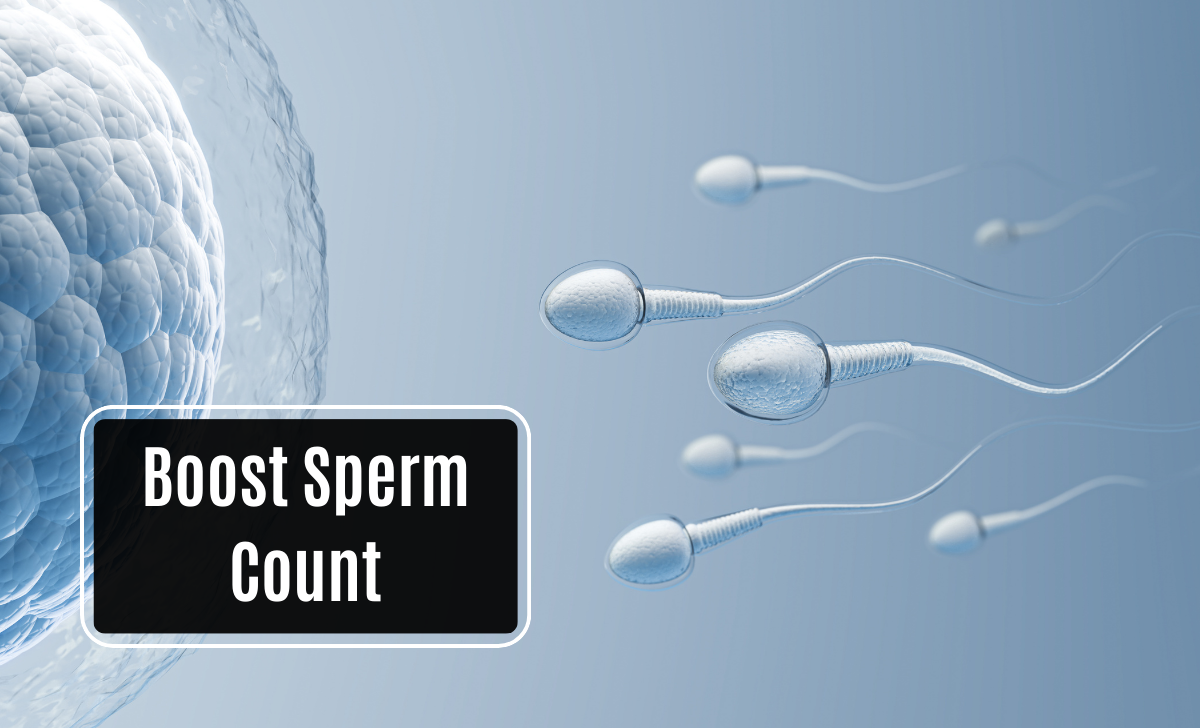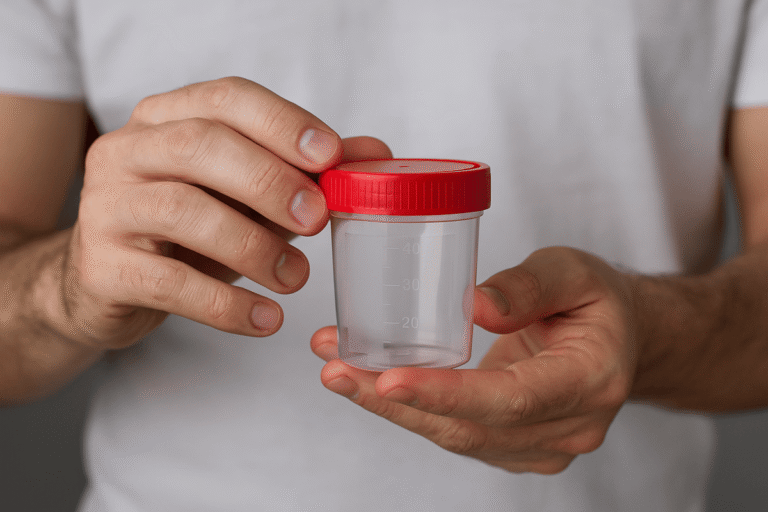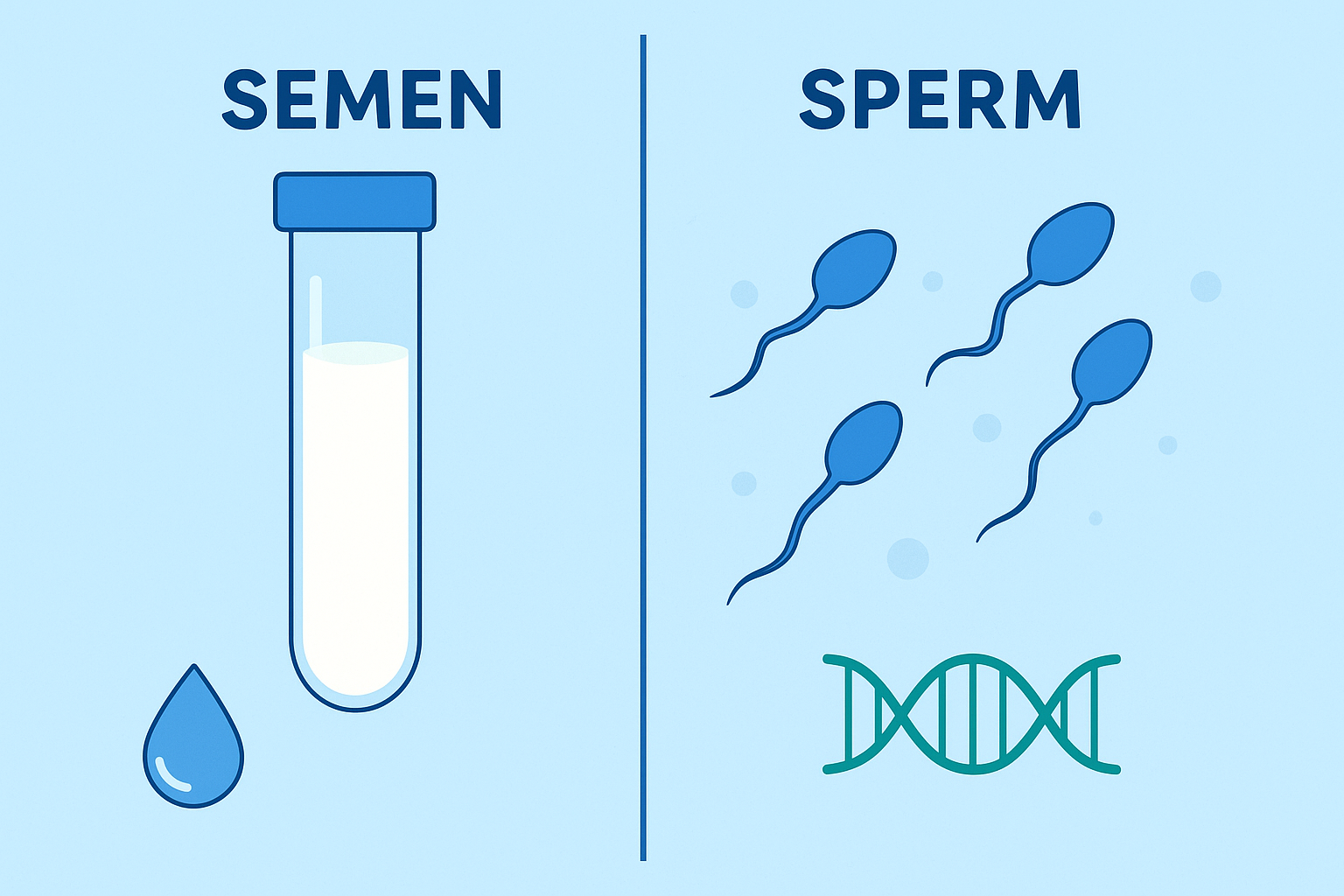Introduction
Male fertility is a key factor in a couple’s ability to conceive, yet it often receives less attention compared to female fertility. However, the reality is that a man’s lifestyle plays a major role in the health and quality of his sperm. Factors like poor diet, chronic stress, lack of sleep, and exposure to environmental toxins can all affect male reproductive health. The good news is that by making a few smart and consistent changes to your daily habits, you can naturally enhance sperm production and quality. In this article, you’ll discover ten practical habits that can significantly support and improve male fertility. Here are some tips to Boost male fertility.
Also read: What Exactly Is Cramping During Sex? Understanding the Sensation
Understanding Male Fertility Basics
Before exploring the habits that can improve fertility, it’s important to understand what makes sperm healthy. Sperm health is commonly assessed through parameters like count (the number of sperm), motility (how well they move), and morphology (their shape). Many factors, including hormonal imbalances, poor lifestyle choices, and exposure to toxins, can lower sperm quality. But with consistent efforts and health-focused routines, men can often enhance their fertility potential without the need for medical intervention.
10 Daily Habits to Improve Male Fertility Naturally

1. Eat Nutrient-Dense Foods for Sperm Health
Your diet directly influences your reproductive health. Eating whole, nutrient-rich foods supports hormonal balance and boosts sperm quality. Incorporate foods loaded with antioxidants such as berries, spinach, and bell peppers. Include zinc-rich sources like pumpkin seeds and shellfish, and add healthy fats like walnuts and fatty fish for omega-3s. Avoid processed foods, trans fats, and excessive sugar, which can negatively impact testosterone and overall fertility.
2. Engage in Moderate Physical Activity
Regular movement is essential for maintaining hormonal balance and a healthy body weight—both of which are crucial for fertility. Aim for 30–45 minutes of moderate exercise like walking, swimming, or cycling most days of the week. Avoid overexertion or extreme workouts, as intense physical stress can reduce testosterone levels and hinder sperm production.
3. Prioritize Restorative Sleep
Getting adequate and restful sleep each night is a natural way to support hormone production, including testosterone. Men who consistently sleep less than 6 hours a night may experience reduced sperm count and lowered libido. Develop a bedtime routine that promotes quality sleep: avoid screens before bed, keep your room dark and quiet, and aim for 7–8 hours of sleep every night.
4. Minimize Daily Stress
Long-term stress can disrupt hormone levels and lead to lower sperm production. Incorporating stress-relief strategies into your daily routine can make a significant difference. Techniques like meditation, deep breathing, light exercise, journaling, or spending time outdoors can help lower cortisol and support healthy reproductive function.
5. Protect Your Testicles from Overheating
High temperatures around the scrotum can interfere with sperm production. Limit hot baths, saunas, or any prolonged heat exposure to the groin area. Avoid sitting with a laptop on your lap and wear loose-fitting underwear made from breathable fabrics. Keeping the testicular temperature slightly cooler than body temperature is ideal for optimal sperm health.
6. Avoid Tobacco and Limit Alcohol
Cigarette smoke contains harmful toxins that can damage sperm DNA, reduce count, and affect motility. Similarly, excessive alcohol intake can disrupt testosterone levels and impair liver function, which influences hormone metabolism. For better fertility outcomes, quit smoking and reduce alcohol consumption to minimal or occasional levels.
7. Stay Well-Hydrated
Hydration is a simple yet essential habit for maintaining semen quality. Sperm need a healthy fluid medium to move effectively, and dehydration can affect semen volume and viscosity. Drink at least 8–10 glasses of water daily, and more if you’re active or live in a warm climate.
8. Limit Exposure to Harmful Chemicals
Chemicals found in plastic containers, pesticides, and personal care products can act as endocrine disruptors, negatively impacting testosterone and sperm health. Choose glass or stainless-steel containers, opt for organic foods when possible, and read labels to avoid products containing BPA, phthalates, and parabens. A cleaner environment leads to better hormonal health.
9. Consider Fertility-Friendly Supplements
If your diet lacks essential nutrients, supplements can provide added support. Certain vitamins and minerals like CoQ10, vitamin C, vitamin E, zinc, selenium, and L-carnitine have been shown to enhance sperm quality. However, it’s best to consult with a healthcare provider before starting any supplement regimen to ensure it suits your individual needs.
10. Schedule Routine Check-Ups
Regular health screenings can help detect and treat underlying conditions that affect fertility, such as varicoceles, infections, or hormone imbalances. A semen analysis is a valuable tool for understanding your current fertility status. Early intervention can help address issues before they become long-term challenges.
Bonus Tips for Couples Trying to Conceive
In addition to improving your sperm health, it’s essential to coordinate with your partner’s ovulation cycle for optimal timing. Engage in intercourse during her fertile window, and steer clear of lubricants that may hinder sperm movement. Emotional support is equally vital—stay positive and encourage each other throughout the journey.
Conclusion
Male fertility isn’t just about genetics—it’s deeply influenced by the choices you make every day. By incorporating these ten science-backed habits into your routine, you can naturally support healthy sperm production, improve your chances of conception, and promote overall well-being. Remember, consistency is key. Small lifestyle changes done regularly can lead to big improvements in reproductive health. Start today and give your future family the best possible foundation.





[…] Also read: Boost Your Sperm with 10 Daily Habits. […]